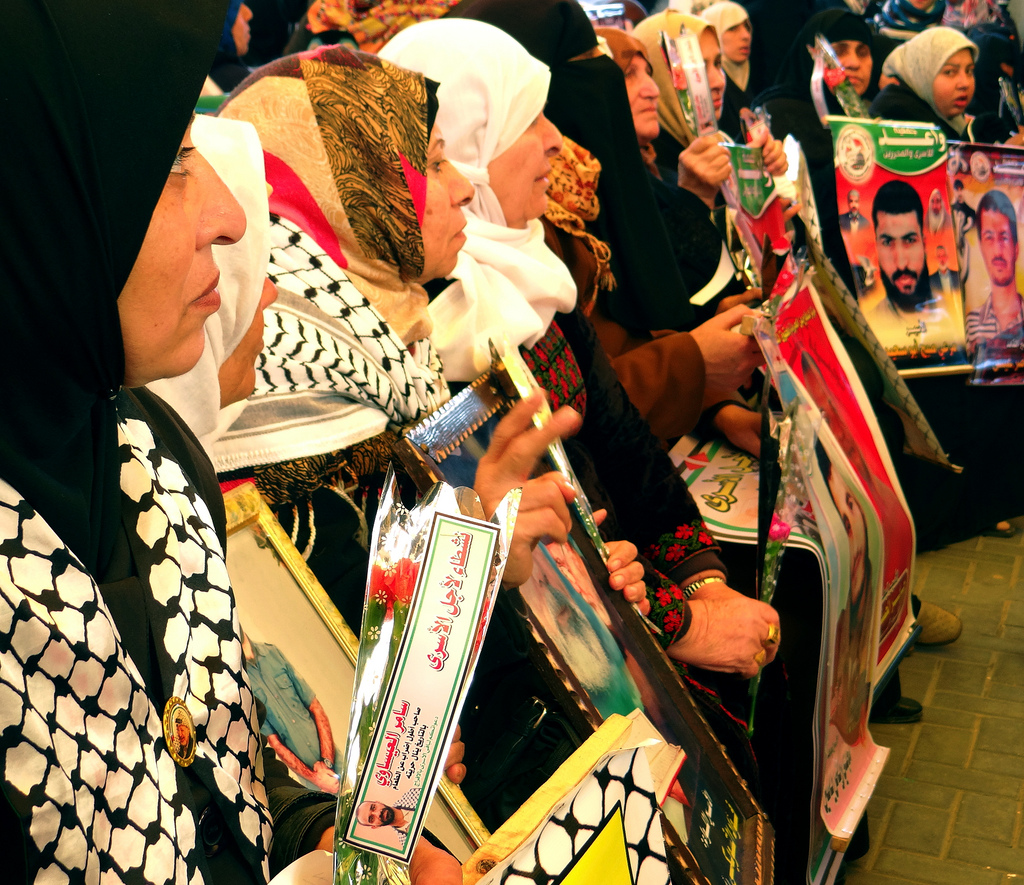Tag: Samer Issawi
-

Hunger strike by human rights defender Ms Shireen Essawi as trial postponed by one year
17th May 2014 | Front Line Defenders | Occupied Palestine On 8 May 2014 human rights defender and lawyer Ms Shireen Essawi began a hunger strike after learning of the postponement of her trial for nine months and a day. She is charged with cooperating with actors who are working against the state of Israel. Shireen Essawi…
-

Photos: Palestinians rally for prisoners in Gaza as Samer Issawi freed in Jerusalem
27th December 2013 | International Solidarity Movement, Marco Varasio | Gaza, Occupied Palestine On 23rd December, like every Monday morning, relatives and friends of the Palestinian prisoners in Israeli jails gathered at the International Committee of the Red Cross’ Gaza office for the weekly rally. But people at the rally had another reason to gather:…
-

No peace without justice; protesters return to Ofer for the fourth day in a row
22 February 2013 | International Solidarity Movement, Occupied West Bank, Palestine Hundreds of protestors again returned to Ofer prison today despite heavy repression. This week’s protests are in solidarity with Palestinian hunger strikers and political prisoners including Samer Issawi who has now refused food for over 210 days. The protest began with prayers in front…
